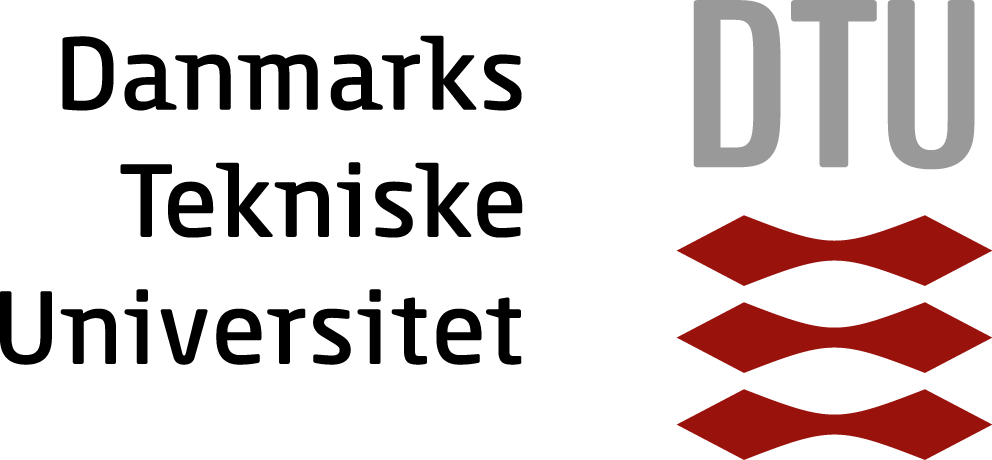
Postdoc in Elasticity modelling - DTU Offshore
Danmarks Tekniske Universitet
- Kongens Lyngby, Hovedstaden Lyngby, Midtjylland
- Permanent
- Fuldtid
- Using elastic strain as a tool for predicting pore-collapse
This WP will improve estimation of matrix permeability in low mobility rocks with high specific surface (in this case diatomites and mixed sediments) and understand even better the effect of permeability from downhole measurements. A newly proposed method, based on frequency dispersion of electrical resistivity downhole logs, will be further developed as a tool for predicting pore size, which in combination with porosity data will allow matrix permeability to be estimated.In addition, the WP will link the resistivity dispersion method to NMR data with the aim of connecting NMR Fluid distribution data with specific surface from resistivity frequency dispersion data.WP2 Elasticity modelling:
Recent studies of chalk and clay-bearing chalk indicate that pore collapse occurs at a critical elastic strain. This means that in situ elastic strain will be a better predictor than porosity of danger of collapse. A pilot study of two wells from Ekofisk field demonstrates how in situ elastic strain can be estimated from burial depth and pore pressure in combination with conventional wireline logging data, including the sonic log.This WP will attempt a similar approach on the more mineralogically challenging diatomaceous intervals. For this purpose, downhole logs, including sonic logs are needed. In order to get full benefit, the logging derived results should be calibrated with elasticity and rock mechanics data obtained from laboratory tests.The announced postdoc position offers a chance to join a team, including experts from AkerBP, developing new techniques for understanding and modelling properties of diatomite's in Norwegian North Sea. This project also has important applications to the Danish North Sea in relation to well abandonment, well integrity, CO2 storage integrity and for new prospect opportunities.The position offers the opportunity to work very closely with industry to test and apply new models. This position would therefore suit someone looking for a career in applied research.The project will be carried out at DTU Offshore (DOTC) the principal supervisor`s will be Professor Simon Ivar Andersen & Senior Researcher Michael Welch, with co-supervision of Tobias Orlander, Geo. There will be a close collaboration with industry experts from AkerBP.Responsibilities and qualifications
The advertised post doc position will be working on WP 2 and main focus will be on combining rock mechanical and rock physical principals and their link to petrophysical properties. Hence, applicants should be responsible for deriving basic parameters from raw data of geomechnical test as well as advanced interpretation results. Your primary tasks will be to:
- Derive mechanical stress-strain parameters from raw laboratory data (strength and compaction properties)
- Derive dynamic properties and elastic strain using rock physical principals.
- Interpret results and link to petrophysical properties.
- Put laboratory data in connection with well logging data.
DTU is a leading technical university globally recognized for the excellence of its research, education, innovation, and scientific advice. We offer a rewarding and challenging job in an international environment. We strive for academic excellence in an environment characterized by collegial respect and academic freedom tempered by responsibility.Salary and terms of employment
The appointment will be based on the collective agreement with the Danish Confederation of Professional Associations. The allowance will be agreed upon with the relevant union.The period of employment is 2 years, starting 1 October 2024.The assessment of the applicants will be made by the supervisors of the project, based on special examinations, including tests and interviews. Applications will be evaluated on a continuous basis.You can read more about .Further information
Further information may be obtained from Michael WelchYou can read more about DTU Offshore atIf you are applying from abroad, you may find useful information on working in Denmark and at DTU at .Application procedure
Your complete online application must be submitted no later than 1 May 2024 (23:59 Danish time).Applications must be submitted as one PDF file containing all materials to be given consideration. To apply, please open the link "Apply now", fill out the online application form, and attach all your materials in English in one PDF file. The file must include:
- Application (cover letter)
- CV
- Academic Diplomas (MSc/PhD - in English)
- List of publications
- A short (no more than 2 pages) description of, how you would address the proposed project.
DTU develops technology for people. With our international elite research and study programmes, we are helping to create a better world and to solve the global challenges formulated in the UN's 17 Sustainable Development Goals. Hans Christian Ørsted founded DTU in 1829 with a clear mission to develop and create value using science and engineering to benefit society. That mission lives on today. DTU has 13,500 students and 6,000 employees. We work in an international atmosphere and have an inclusive, evolving, and informal working environment. DTU has campuses in all parts of Denmark and in Greenland, and we collaborate with the best universities around the world.